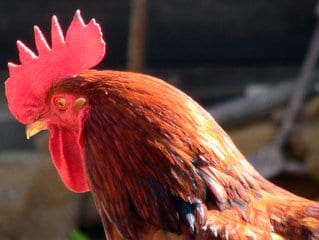Middle Eastern Countries Move Toward Self-Sufficiency in Chicken, Egg, and Dairy Production, Creating Opportunities for U.S. Soy
- Category:
- Animal Utilization
- General News

This story originally appeared in The Peninsula, Qatar’s second English language daily launched in 1996. To read the story on The Peninsula’s website, please click here.
Doha: After increasing the production of dairy and poultry products tremendously in the last one-and-a-half years, the Ministry of Municipality and Environment is aiming to start exporting these two types of food products by the end of this year.
Qatar has achieved self-sufficiency in the production of chicken and eggs and efforts are being made to be self-sufficient in dairy products this year.
“The Ministry of Municipality and Environment has set the target to be in the position of exporting dairy and poultry products by the end of 2019 as the self-sufficiency in these products is about to be achieved,” Saleh Jarullah Al Marri, Head of Animal Health Section at the Ministry told The Peninsula on the sidelines of a recent event.
He said that the Ministry of Municipality and Environment has intensified efforts to increase the local production of livestock to raise the quantity of locally produced meat and milk under food security program of the country.
“The number of livestock in the country including camels, sheep, goats, and cows has reached 1.6 million head,” said Al Marri adding that the Animal Health Section is providing all necessary vaccinations and treatments to protect the livestock.
The Ministry, he said, is running 10 veterinary centers across the country offering a number of services to livestock farms like immunizations, treatments and those related to veterinary services.
“Animal Health Section is running a separate veterinary unit for pet animals and the unit aims at curbing the increase of stray dogs and cats through sterilization,” said Al Marri.
Saleh Jarullah Al Marri, Head of Animal Health Section at the Ministry of Municipality and Environment, said Quarantine section is issuing permits to individuals and companies for importing livestock to ensure they are free from infectious diseases from the country of origins.
He urged the owners of animal farms to get their animals vaccinated in collaboration with Animal Health Section on time without any procrastination to protect them from any infectious diseases. “The Section runs vaccination campaign and holds a workshop to educate the livestock farms on the importance of vaccination,” said Al Marri.
He said that the Animal Health Section has planned to set up veterinary centers in all complexes of livestock farms and to increase the staff. Regarding the production of green fodder in the country, Al Marri said: “A local company which entered in this field is now producing green fodders and two companies are expected to join the business to meet the need of green fodder in the country.”